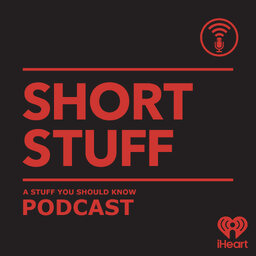How the Space Race Worked
In the 1950s and 60s, the United States and the Soviet Union battled it out to see who would dominate the race for outer space. The Soviets got out to an early lead, but the U.S. would ultimately win. Learn all about the Space Race in this week's episode.
Learn more about your ad-choices at https://www.iheartpodcastnetwork.com
 Stuff You Should Know
Stuff You Should Know


